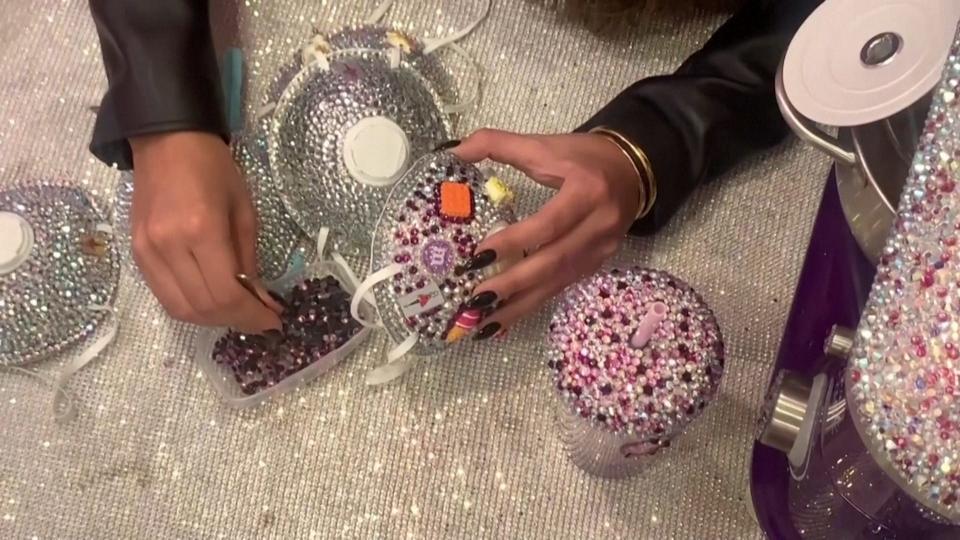There's a global shortage of face masks — but people around the world are using creative methods to make their own
The coronavirus pandemic has caused a global shortage of face masks, pushing people around the world to start making their own.
A Jordanian designer, a Rwandan tailor, and an Italian upholsterer are all offering handmade masks to the public.
Meanwhile, students at a school in Colombia are making their own masks from recycled materials.
To make up for the global shortage of medical face masks caused by the coronavirus outbreak, workers in far-flung locations are taking matters into their own hands.
People in Italy — one of the hardest-hit countries by the pandemic — as well as countries that have relatively few cases of the virus, like Jordan, Colombia, and Rwanda, are finding creative solutions to help people secure supplies.
And in some cases, make a fashion statement.
Jordanian designer Samia Alzakleh has been designing bedazzled face masks made with hundreds of Swarovski crystals each. She's sold 60 of the sparkling masks in two weeks.
Jordan had 127 confirmed cases of the coronavirus as of March 24.
"These are not 100% medical. I just wanted to encourage people to wear masks,"she told Reuters. "And for people who like to follow fashion and the latest fashion trends, they can wear them."

Reuters
A world away in Soacha, Colombia, students at Julio Cesar Turbay school are also making their own masks in light of the shortage. They use materials like banana leaves, plastic bottles, and newspaper.
Colombia had more than 300 confirmed cases of the virus as of March 24. Masks are especially scarce in the Bogota area, where air pollution runs high.
"As we are a population of limited resources, a vulnerable population here in the outskirts, our boys can't find the masks," Adriana Cubillos, a teacher at the school, told Reuters.
"They are not being sold, and if they are sold, the prices are beyond our budget. That is the reason why we have decided to do this as a didactic element."
Masks are also hard to get in Rwanda, where 36 cases of the coronavirus have been confirmed as of March 24.
One tailor in the country's capital of Kigali, Alexander Nshimiyimana, has been making face masks out of traditional fabric called kitenge.
"We are trying to protect ourselves to limit the infection of the people during this virus attack," he told Reuters.
He sells his masks for 50 cents each — a fifth of the market price.
Italians are also finding ways to innovate.
With over 63,000 confirmed cases as of March 24, Italy is the worst-hit country after China.

Reuters
Adolfo Lettieri, the owner of an upholstery business in Tuscany, turned to mask-making in response to soaring mask prices.
"We started to make these masks out of anger, really, because when we tried to go and buy them, they were charging 15 euros a mask," Lettieri said. "So I decided to make them and give them away for free because this overcharging is something I can't stand."
The team of volunteers makes 1,500 masks a day using upholstery fabrics. Around 100 people line up each afternoon to wait for a free mask.
Healthcare workers around the world still lack access to these critical supplies. According to the World Health Organization, manufacturing of protective equipment would need to increase by 40% in order to meet current global demand.
But Lettieri believes that providing homemade masks for local citizens is also useful.
"I say, better this than nothing," he said. "People turn up and they're using baking paper, shawls, or even scarves, so better my mask than that."
With their entire country on lockdown, Italians have been helping contain the outbreak any way they can.
Maurizio Favilli, a retired tailor and a volunteer at Lettieri's business, said he's happy to put his skills to good use.
"I found out about his initiative and, given my experience, I wanted to make myself useful with the experience I've picked up, even if I am 80 years old," he said.
"I'm happy to be doing this."
Read the original article on Business Insider

